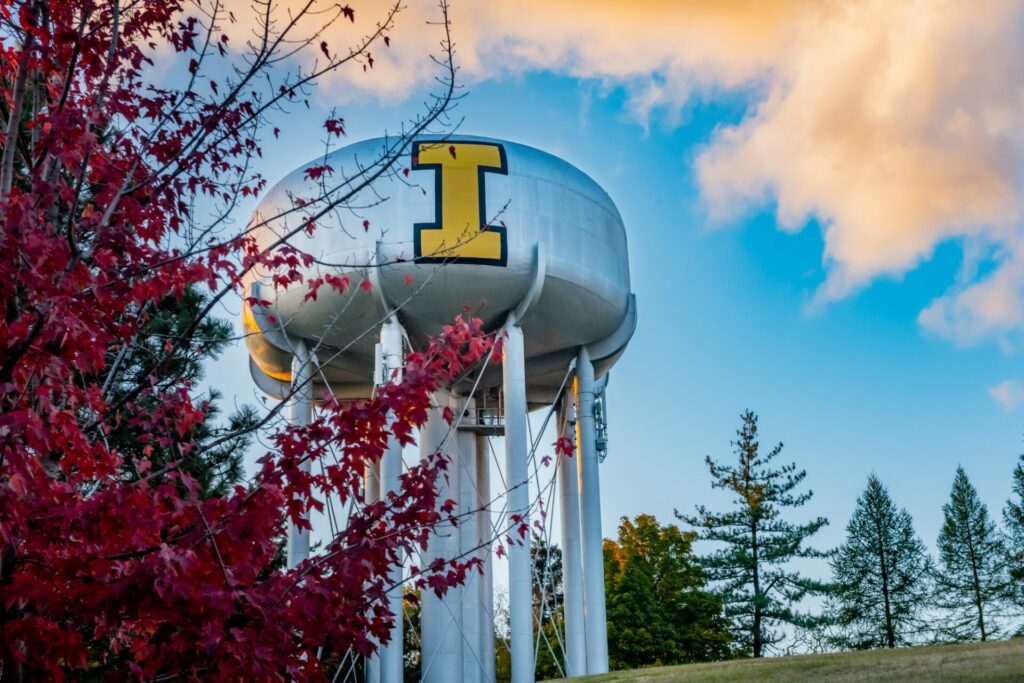Hear From Our Recent Athletic Training Graduate
I recently had the pleasure of sitting down with Stephen Panteleakos, who graduated earlier this year from our University of Idaho MSAT program. As an athletic training student, Stephen was always a delight to be around. Our faculty and staff were excited when he decided to continue his education with a Doctor in Athletic Training (DAT) here with us. Because of the unique structure of our DAT, Stephen is now balancing full-time employment with his graduate athletic training coursework. I caught up with him during his busy schedule to get some insight on our program from the student perspective. While we as faculty and staff always strive to offer one of the best athletic training programs out there, our measurement of success comes from our students. What was their experience as an athletic training student? How was their job search? How did they settle into the life of an athletic trainer? Insights from our students can help guide us to be the best athletic training program. How did we do? Check out Stephen’s student testimonial below.
Where are you living and working now?
I am currently living in Washington state and working as a civilian contractor with the Department of Defense.
When did you first decide you wanted to pursue a career in athletic training?
I first decided to pursue a career in athletic training after two hip injuries that both required surgery and extensive rehabilitation. I had the opportunity to work with an athletic trainer who provided an excellent experience for me, and I knew from that point forward that I wanted to provide that same service to others.
What made you choose UI?
I chose the University of Idaho because of the extensive depth of the program, exposure to a wide array of manual therapy techniques, and the nuanced curriculum and approach to patient care. I wanted to make sure that if I was going to invest in a graduate program that it would invest in me.
What did you find special or unique about the program?
The faculty, the focus on implementing evidence-based medicine, depth and quality of the curriculum, and excellent clinical rotation experience.
How was mentorship in the program?
The mentorship from not only faculty but also clinical preceptors is top-notch. Faculty were always available whenever I had questions about class content, clinical practice, or if I wanted more information about topics outside of class. Faculty were eager to help me in any way that they could, and they supported my hunger for knowledge and growth.
What did you find surprising?
I was surprised at how much I was able to learn during my two years in the program, and how extensive the learning opportunities were not only in the classroom, but outside of it as well. A lot of that I credit to the faculty as each of them brings a wealth of personal knowledge and professional experience that proved invaluable to me as a student.
How much time did you put into learning while in the program?
All of it – and then some. It was a lot of work, but I prioritized my learning not only in the classroom but especially at my clinical rotations. And it paid off when I started looking for jobs.
What was your job search like?
Very easy – and short. In large part because of the knowledge and experience I gained from the MSAT, I had jobs reaching out to me with position offerings, and for the jobs I applied for I had a competitive advantage based on my education from the MSAT. I felt confident in my professional value as a healthcare provider, and I felt confident and prepared to seek out the positions I wanted.
What is life like now as an athletic trainer?
I love my job, I love the team I work with, and I love the environment. Every day I get to use the skills and education I received at UI while continuing to build, expand and grow my skillset. I feel confident in my ability to provide high-quality patient care, and really focus on becoming an advanced practitioner during my doctoral residency over the next two years.
Where do you draw inspiration from in your career?
I draw inspiration from my past as a patient and knowing what it feels like to have a terrible rehabilitation process so that I can ensure my patients don’t have that experience. My biggest inspiration is from my family, friends, and especially mentors who have helped shaped who I am as a provider. I am still connected with a lot of the faculty members and preceptors – in fact, I am lucky enough to work alongside a previous preceptor of mine!
We’re so pleased that Stephen was able to sit down and give us a look at our program from a student’s perspective. One of the best parts of what we do is hearing back from our students to see how our innovative program was able to support them in achieving their goals. Thank you Stephen for being part of our University of Idaho family!
